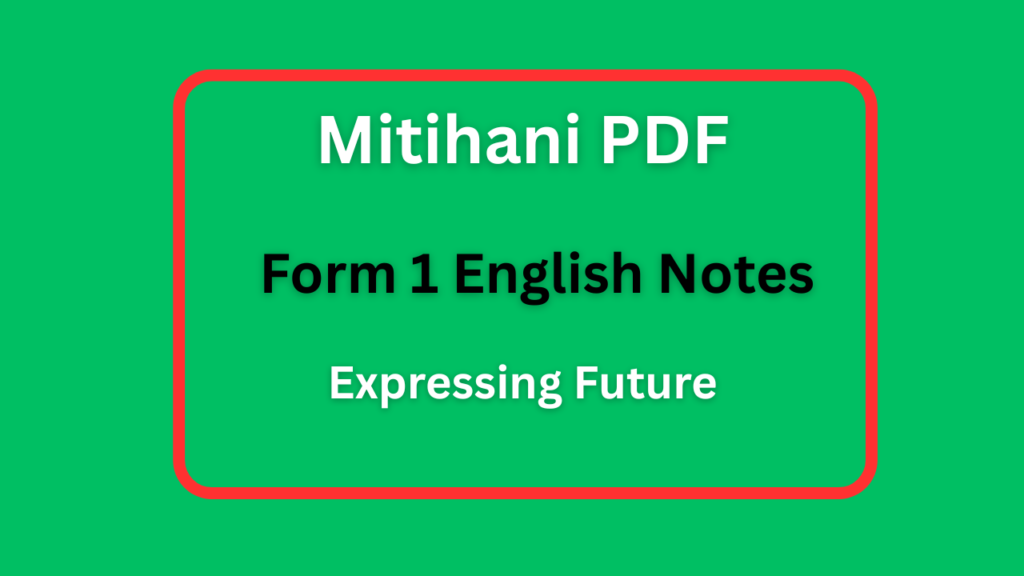Form One English Notes Expressing Future
In Form One English under the Tanzania syllabus, students learn how to express future actions or events using different grammatical structures. The most common ways include the use of “will” for predictions or spontaneous decisions, and “be going to” for planned future actions. For example, “I will visit my grandmother tomorrow” (decision) versus “I am going to study hard for my exams” (plan). Additionally, the present continuous tense can express future arrangements, such as “We are traveling to Dar es Salaam next week.” These structures help students communicate intentions, plans, and predictions clearly and accurately in both written and spoken English.
Teachers often use real-life situations, such as discussing future careers or holiday plans, to help students practice these tenses. Exercises may include filling in blanks, constructing sentences, or role-playing dialogues. The syllabus also emphasizes time expressions like “tomorrow,” “next month,” or “in 2030” to reinforce the future context. By mastering these concepts, Form One students build a strong foundation for more advanced English grammar topics while improving their ability to express themselves confidently about future events in daily conversations and written work.

